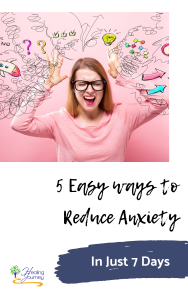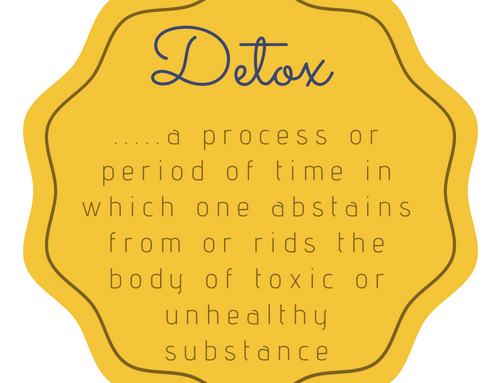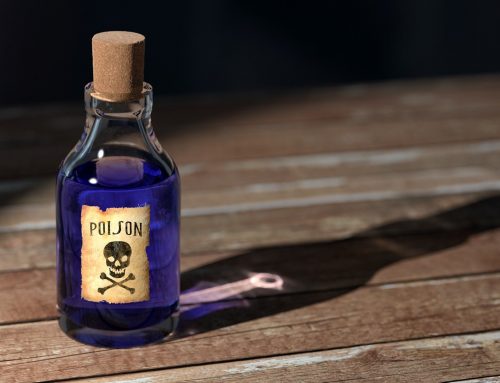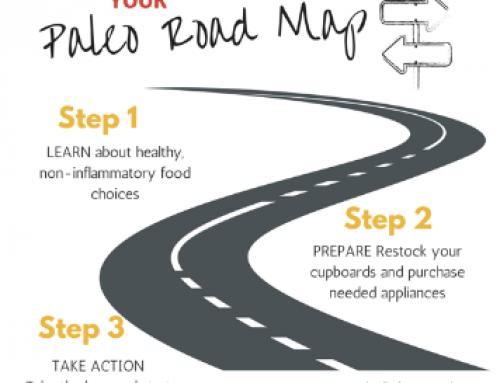3 Links Between Gut Health & Anxiety
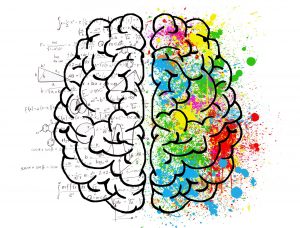
I’m really excited to start to share with you and hopefully form new connections in your mind that the link between anxiety and gut health. When most practitioners think about anxiety, they think about doing therapy – mostly through CBT (cognitive behaviour therapy) as this is the most researched, and effective forms of therapy for anxiety. But what happens when CBT isn’t effective. Or when it brings your anxiety down, but not where you want it to be?
This is where the link between anxiety and gut health comes in. There are three main connections I want to talk about here that link gut health to anxiety.
The first connection is eating gluten, specifically if you have an intolerance to it, and thus an intense immune response.
The second connection is copper toxicity – commonly seen in women who have taken birth control for any amount of time (yes, even if you have stopped), with Lyme and with parasites.
The third link is mold – which can colonize in the GI tract and create all kinds of anxiety by damaging the limbic system’s ability to respond appropriately and by over activating the alarm bells in the immune system. Tune in below for more info.
Speaker 1: (00:01)
Today I’m going to be talking a little bit about anxiety and I’m going to be linking anxiety to gut health. So I am super excited about this topic because I come from a background of mental health, because I’m a therapist and training and helping people sort out chronic mental health issues is near and dear to me and I’ve also struggled pretty significantly, um, with anxiety. And this is really the first time I’ve talked about it on video. So I’m really excited to start to share with you and hopefully form new connections in your mind that the link between anxiety and gut health. So I’m Jodie, a functional health practitioner and founder of healing journey. You can find more information about me. I have www.healingjourneyservices.com I also offer a wicked awesome membership program that helps women get to the root causes of their gut issues.
Speaker 1: (00:53)
I quite literally help women get their shit together. So this is, I’m going to offer lab testing. I also offering an amazing support Facebook community that I have monitored daily to answer any questions along their health journey. We give anyone who orders a test protocol and then we help guide you in what tests to order and basically everything that you need to know to heal your guests without the astronomical fees of a one-on-one coach. So, pretty cool program. So check it out if you’ve had chronic health issues and you’ve had enough. Click here.
So let’s dive in to anxiety. Um, so you know, I was taught in my mental health upbringing that, you know, a lot of your anxiety is based on how you think, you know, if you’ve had a lot of thinking traps, if your understanding of worry is kind of off, if your worry meter is off, you’re often you’re freaking out about things that really don’t have that high risk, then you need to retrain the brain to reassess the situation and to figure out the thinking traps you’re doing.
Speaker 1: (02:00)
And then your anxiety will go down. And for a chunk of people, this is actually quite effective. There’s been a lot of research done on the link between anxiety and the therapy that I’m talking about, which is cognitive behavioral therapy. And it’s done wonders for reducing people’s anxiety. So after spending years in this world, you know, I really struggled with a certain clientele to see an improvement, maybe a little bit of anxiety that is going down a notch, but they were still revving at a pretty high and level. And so I started to get really curious about what is actually going on underneath that and why can’t I as a therapist who spend hours and hours and hours training and talking to people and teaching them CBT, see these results, like why is this anxiety is still there. And then I was introduced to the functional health world and my mind was literally like blow in and all of the physiological causes of anxiety.
And this actually came around a time when I was experiencing astronomically high anxiety myself. So I was always like a little hyper, a little bit anxious, if you want to call it that. But you know, there was a point in my life where things shifted and I couldn’t really pinpoint why but my anxiety was out of control and I’m talking, you know, heart palpitations to watching Master Chef. And I knew at this point that my worry meter wasn’t out of balance. You know, I wasn’t worried that Gordon Ramsey was going to come through the screen and make me cook. It was just the nervous system was so overstimulated that the excitement of watching something and you know, empathizing with the contestants was so overwhelming that I literally couldn’t handle it. And that’s when I really started to do a bit of a deeper dive into, you know, what’s can be underlying anxiety.
Speaker 1: (03:51)
And so I’m going to share with you today three key reasons of why, CBT isn’t working for you or why this might be a physiological issue. So what to look for. So the first thing I wanted to mention with gluten, and I actually have a pretty powerful case study of a client of mine who went off of gluten. And the school actually called me and said, what did you do? Her anxiety is so different. And that client actually was diagnosed with celiac disease, you know, a couple of years later. And so you could definitely seen the link between the celiac and the anxiety. It was actually crazy. So that’s why I always recommend that people that work with me go off of gluten. I’ve done videos on gluten and I’m going to do more videos on gluten, but in relationship to anxiety, if you, if you are having an immune response to gluten, that stress, that immune response stress is going to just reek havoc it all over your body, including creating anxiety.
Speaker 1: (04:55)
Number two. Number two is copper toxicity. And I haven’t done a full video on copper toxicity in a long time, but copper toxicity is huge because copper toxicity is very stimulatory. So it’s going to be stimulating the production of cortisol. So you have more cortisol to produce. It’s also going to be impacting dopamine. Very excitatory so you’re going to experience crazy amounts of anxiety. And this was actually the case for me. So when I did an HTMA or a hair test, my anxiety was like off the charts high and so was my copper. Maybe there’s a link. Well, what’s interesting was when I started to take a binder to get rid or up the copper out of my system, my anxiety literally went down notches, like down notch notches. So that’s huge, huge piece. So you might be sitting there thinking like, what the heck is copper toxicity and how do I get it so I can get it?
Speaker 1: (05:50)
If you have Lyme disease, you can get it. If you have certain parasites that are going to cause copper toxicity, you can also get it if you’ve been on a birth control pill or any sort of birth control at all. Because what happens is it creates estrogen dominance and then estrogen raises copper. And so you’ve got tons of copper being stored in your body. So, even if you’ve been off the pill or birth control for years, if you took it for a chunk of time that was enough for the copper to accumulate and your body is not going to be able to naturally release it because it’s so exhausted from the copper that’s already there. And so that’s a huge, huge missing link for a lot of people.
Number three also near and dear to me is mold. And you know, if you check a couple of videos back, I just did a whole thing on mold and um, but I didn’t really go into anxiety, but basically molds can trigger crazy amounts of anxiety for people.
Speaker 1: (06:46)
And so my story is, you know, I lived in a moldy building. I didn’t see the mold really, there was like a couple of block dots in the bathroom. I thought nothing of it. But there was massive amounts of water going behind the bathroom wall from the floor above to the floor below. And that was enough to trigger a mold toxicity within me. And so that created a whole host of anxiety. So I’m telling you this because you don’t need to see the mold for it to cause anxiety. Then I moved to a new place where, you know, just been gutted about a year ago and I figured there was no mold there and I expereicned crazy amounts of anxiety there as well. Like I’ve just spent all day stressing about being busy and doing stuff and it, and it really wasn’t making sense because he had no deadlines for the stuff that I was stressing about.
Speaker 1: (07:33)
And literally when I moved out of this place, like within a couple of days, my anxiety went down a notch. Right?
So these are three examples of links to your anxiety and you know how your anxiety can be linked to gut issues because mold grows in the gut. Copper affects, you know, yeast overgrowth. Copper is going to be affecting digestion. The more copper toxic you are, the more parasites you have. So there are definitely lots and lots of links in gluten obviously destroys the gut. So lots of links between the specifics of your gut health and your gut dysfunction and how that can connect to anxiety.
And I didn’t even go over the gut brain connection, which is a whole other thing, right?
So I’d love to hear from you because I’m planning on doing a lot more discussion about anxiety, about why your experience has been with anxiety. If you have anxiety and got help, and if these ideas that I’m talking about today, are they new for you?

